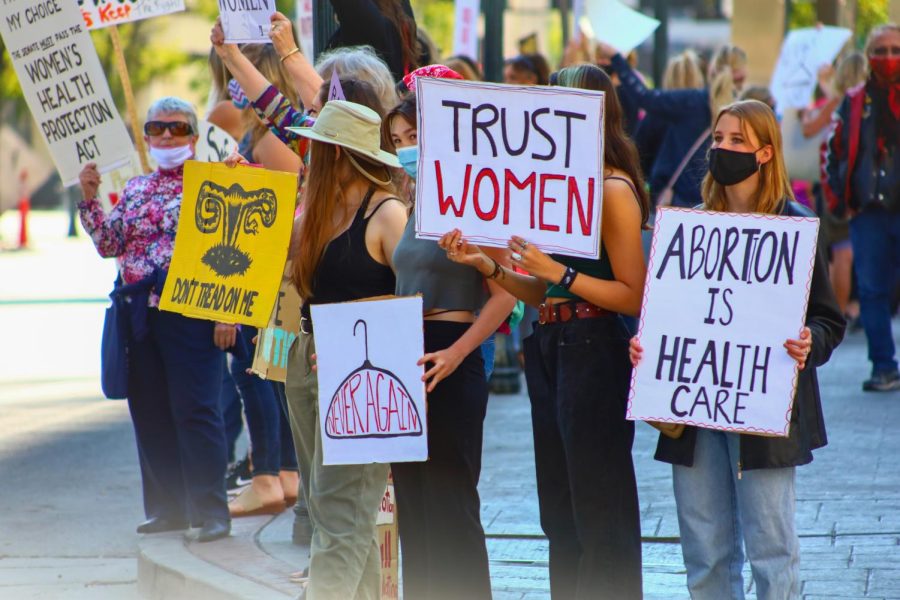Recently, the possibility of overturning the precedent established by Roe v. Wade has stirred strong feelings within American society. However, the side effects that may result from this overturn are threatening people’s online privacy.
In 1973, the U.S. Supreme Court ruled in favor of Roe in an extremely controversial case. This decision established women’s right to abortion in the first trimester of a pregnancy. During the second trimester, states can regulate abortions, but they cannot outlaw abortion. During the third trimester, states hold the right to outlaw abortions.
If Roe v. Wade is overturned, all abortion rights would fall into the hands of state officials which would lead to many states placing restrictions upon women. Though this is the obvious effect of the overturn, there are multiple less obvious effects that would also follow if Roe v. Wade is overturned.
Period apps are used by many to track their menstrual cycles. They can help one understand their own unique pattern, mood swings, and overall health and wellness. The data that is stored within period apps is very personal to individuals. It can show when a period or pregnancy begins and ends. If Roe v. Wade is overturned, the government will be able to access this information to monitor whether one may be considering an abortion. Privacy experts are worried for women who use period trackers, especially those in states where abortion could be criminalized.
Junior Kayla Ruge uses a period app regularly and feels frustrated by the possible change. “The fact that my personal information could be used against me is annoying,” she said. “I believe that my privacy should be protected especially when it comes to my health information.”
However, period apps are not the only technology that governments can track. Location tracking would enable governments to see if one is inside of an abortion clinic. Search histories can also be tracked. Data from this could be analyzed to interpret whether one is considering an abortion.
There have always been concerns over online privacy, but the recall of Roe v. Wade could make the extremes of this debate a reality. With no protections of privacy, women will have to live in fear of being prosecuted simply because of data.
Apart from online privacy, the overturning of Roe v. Wade would restrict access to certain types of birth control. In most Republican areas, politicians have drafted proposals that limit access to emergency birth control methods such as Plan B and intrauterine devices (IUDs). This drafted legislation comes after anti-abortion interest groups argued that emergency contraceptives defeat the purpose of any legislation that restricts abortion.
Junior Aarya Joshi feels like this added restriction is too harsh. “The possible overturn of Roe v. Wade is already too much, but how can you expect women to not get abortions if they don’t even have access to contraceptives,” she said.
The view of antiabortion groups, however, is not necessarily correct. Emergency contraceptives prevent ovulation from occurring. This prevents an unwanted pregnancy rather than ending a pregnancy that has already begun. Along with this, restricting access to emergency contraceptives puts women in an extremely vulnerable position even though they are not trying to end a pregnancy.
Ruge commented on how misinformation of this nature is detrimental to society as a whole. “I think it just shows that a lot of people don’t actually know the truth. When they begin to spread misinformation, the truth quickly becomes lost,” she said.
From invading the online privacy of individuals to limiting birth control options, the overturning of Roe v. Wade comes with scary consequences for many. Women will be stripped of their rights if this precedent is reversed. Taking away these basic human rights will reverse the progress that society has made over history.









